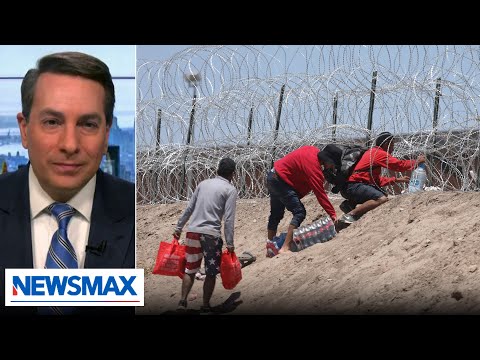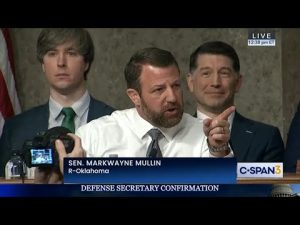The current immigration situation in America has sparked heated debates, especially surrounding the actions of the Biden administration, which many feel has left the country’s borders wide open. President Trump, in his previous term, campaigned on a hardline immigration policy, vowing to strengthen border security and deport illegal aliens who had crossed into the country during the previous administration’s open-door policies. This week, the federal Immigration and Customs Enforcement agency, known as ICE, conducted a series of raids in cities like New York, Chicago, and San Francisco, which sent shockwaves through various communities. Critics of the operation have drawn troubling comparisons, suggesting an eerie parallel between contemporary deportations and historical events like the Holocaust, raising eyebrows and emotions alike.
Despite their claims, it appears that the majority of Americans are supportive of stricter immigration measures. In stark contrast, some high-profile entities, including the U.S. Conference of Catholic Bishops, have expressed strong disapproval of these enforcement methods. The bishops, who have often refrained from publicly challenging President Biden on his contentious policies, swiftly reacted against Trump’s immigration initiatives. Their statement pointed to serious concerns regarding the treatment of immigrants and refugees and suggested that such executive orders could lead to detrimental consequences for vulnerable populations. However, this call for compassion is heavily scrutinized, especially when one considers the recent immigration laws enacted by the Vatican itself, which bear a striking resemblance to the very policies criticized by the bishops.
Vatican City recently implemented stiff penalties for illegal entry, featuring bans, fines, and prison sentences for violations. This raises questions about the church’s stance on immigration laws in the U.S. if it is taking such a firm approach in its own territory. The confusion deepens when considering the Catholic Church’s financial ties to resettling illegal immigrants, receiving significant funding from the government. Critics argue that this financial dependence influences the church’s viewpoints, leading to a knee-jerk opposition to enforcement measures that otherwise align with a lawful society.
Vice President J.D. Vance has not shied away from addressing this complex issue, pushing back against the church’s criticism and demanding that church leaders reflect on the implications of their financial support for illegal immigration. He called into question whether their responses stemmed from genuine humanitarian concern or a desire to protect their funding streams. This situation leaves one pondering whether Catholic institutions are prioritizing goodwill and spiritual missions or allowing fiscal motivations to overshadow core missions, especially amidst growing concerns about illegal immigration causing societal and economic strain.
The Bible indeed advocates for love and compassion towards immigrants, urging believers to care for those in need. However, as many endorse, it does not condone lawlessness or compromise the safety and security of a nation. A bipartisan consensus on immigration policy is crucial, and faith-based organizations can play a vital role in supporting legitimate refugees without supporting illegal entry. The stand taken by the Catholic Church and other religious organizations in opposing deportations while receiving government aid raises a host of ethical questions about how these actions align with their foundational beliefs and the consequence of these actions on American society as a whole.
Ultimately, as the country navigates these turbulent waters of immigration policy, both the government and faith-based organizations must engage in serious introspection regarding their roles and responsibilities. The time has come for leaders, whether in the Vatican or Washington D.C., to strive for a balanced approach that prioritizes compassion without undermining the law. Only then can the true American dream be preserved while ensuring that laws are upheld to protect the people. The complexities of this issue call for unity among individuals and organizations alike, working towards solutions that benefit both the vulnerable and the lawful citizens of this great nation.



